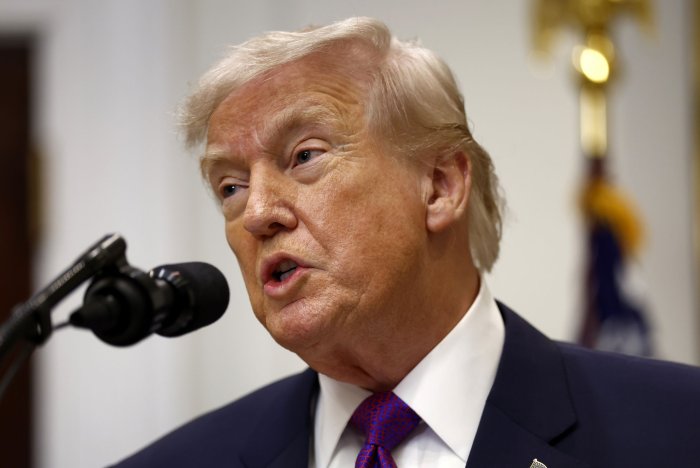Trump administration eliminates greenhouse emission standards for vehicles
Feb. 12 (UPI) — The Trump administration announced an end to greenhouse gas emission standards for all vehicles made in model year 2012 or later Thursday.
The administration revoked the 2009 Greenhouse Gas Endangerment Finding and all other emission standards related to greenhouse gases. The U.S. Environmental Protection Agency said in a press release that the move will save taxpayers $1.3 trillion.
“The Endangerment Finding has been the source of 16 years of consumer choice restrictions and trillions of dollars of hidden costs for Americans,” Lee Zeldin, EPA administrator, said in a statement.
Zeldin was joined by President Donald Trump for the announcement in the Roosevelt Room of the White House.
The Greenhouse Gas Endangerment Finding set the legal basis for regulating pollution tied to climate change as part of the Clean Air Act, the primary federal air quality law enacted in 1963.
Climate advocates and lawmakers sounded the alarm about the decision, gathering outside of the EPA headquarters in Washington, D.C., on Wednesday.
“This is corruption, plain and simple,” Sen. Sheldon Whitehouse, D-R.I., said at the gathering. “This is an agency that has been so infiltrated by the corrupt fossil fuel industry that it has turned an agency of government into the weapon of fossil fuel polluters.”
Critics of the Trump administration’s rollback on greenhouse gas emission regulation say it may lead to trillions in costs for climate damages and healthcare.
Manish Bapna, president of the Natural Resources Defense Council, said Wednesday that her organization will take legal action.
Thursday’s move follows Trump signing an executive order on Wednesday directing the Pentagon to purchase coal-fired electricity in an effort to boost domestic coal production.

